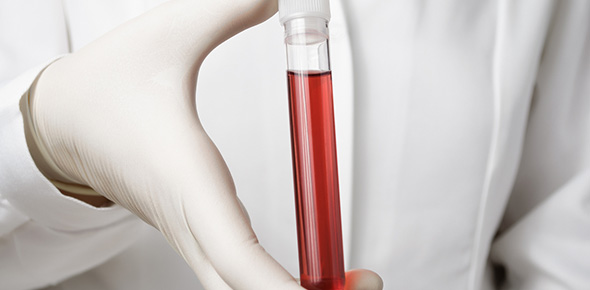Related Flashcards
Cards In This Set
| Front | Back |
|
What symptoms are associated with gastric cancer in the
early stages?
|
Indigestion, abdominal discomfort initially relieved with
antacids, feeling of fullness, epigastric, back or retrosternal pain (Note:
many patients in the early stage have no clinical manifestations.)
|
|
What symptoms are associated with gastric cancer in the
advanced stage?
|
Nausea & vomiting, obstructive symptoms, iron deficiency
anemia, palpable epigastric mass, enlarged lymph nodes, weakness & fatigue,
progressive weight loss
|
|
What foods are considered risk factors for the development
of gastric cancer?
|
Pickled, salted or smoked foods
|
|
What is the largest risk factor for gastric cancer?
|
Infection with H. pylori
|
|
What nonsurgical interventions are helpful for a patient
with gastric cancer?
|
Radiation and chemo can prolong survival of patients with
advanced gastric disease, gastric cancers are somewhat sensitive to the effects
of radiation-treatment is limited, however, because of metastasis to other
abdominal organs
|
|
What types of chemo are used for the gastric cancer patient?
|
Combination chemo with multiple cycles of cisplatin and
epirubicin before and after surgery seems to have the best results
|
|
What surgical intervention is the preferred method of treatment?
|
Surgical resection, primary procedures are total gastrectomy and partial gastrectomy to remove the tumor involved
|
|
What other form of surgery is available?
|
Palliative surgical treatment is available for patients with advanced cancer. Palliative resection can improve quality of life for a patient who is suffering from obstruction, hemorrhage or pain.
|
|
What labs or diagnostic imaging is used for a patient with gastric cancer?
|
Hct and Hgb to assess for anemia d/t decreased iron or vit B12 absorption, occult blood test to detect any blood in the stool, liver tests checking for abnormal bilirubin levels and hypoalbuminemia in advanced stages, carcinoembryonic antigen is also elevated in advanced stages, EGD with biopsy is used for a definitive diagnosis of gastric cancer as the lesion can be viewed directly and biopsies of all visible lesions can be obtained, an endoscopic ultrasound can also be performed during the endoscopy which evaluates the depth of the tumor and the presence of lymph node involvement, CT, PET and MRI are also used to determine extent of the disease.
|
|
Are there any other medications for the gastric cancer patient besides chemo medications?
|
Yes, for those patients who have had surgery to remove all or part of their stomach. They will receive pain medications and antibiotics if infection occurs.
|
|
What are the potential complications of gastric cancer?
|
Potential complications can occur mainly after surgery. Because a patient's stomach can be fully removed they have to watch their nutritional intake to avoid a nutrition imbalance. They are not going to be as hungry and they won't be able to eat as much. They are also at greater risk for infection. Not only as a result of surgery but if they are not getting the proper nutrients that can also lead to general infections anywhere in the body. Ex. it will be harder to fight off the common cold. They can also suffer from dumping syndrome that occurs after eating and it is believed to happen as a result of rapid emptying of food causing abdominal distention. Another complication of gastric surgery is afferent loop syndrome. The duodenal loop is partially obstructed with pancreatic and biliary secretions.
|
|
What outcomes should the nurse watch for in the patient with gastric cancer or who has had gastric surgery?
|
Evaluate those with a higher risk of gastric cancer and their diet. Have those eliminated pickled, processed or salted foods from their diet? Are they smoke free or alcohol free? Patients will be able to state the risk factors for gastric cancer. The patient will be able to identify ways to remain infection free. The patient is maintaining an adequate nutritional intake; the patient's weight remains within 5 pounds of desired weight, the pt denies abdominal pain and the pt has bowel sounds that remain at 3 - 5 per quadrant per min.
|
|
What teaching will help the pt with gastric cancer or surgery?
|
Teach patients with gastritis and/or H. pylori infection to follow the treatment regimen to ensure that they heal and the infection is eliminated. Teach the pt to eat a well-balanced diet and limit pickled, salted and processed foods. Teach the pt about surgical, radiation and chemotherapy treatments to aid in their decision making. Teach the pt about any side effects of radiation, chemo and surgery. Teach the pt about the option of hospice if their cancer is in the advanced stages and has spread.
|
|
Source
|
Iggy, Medical-Surgical Nursing
|





